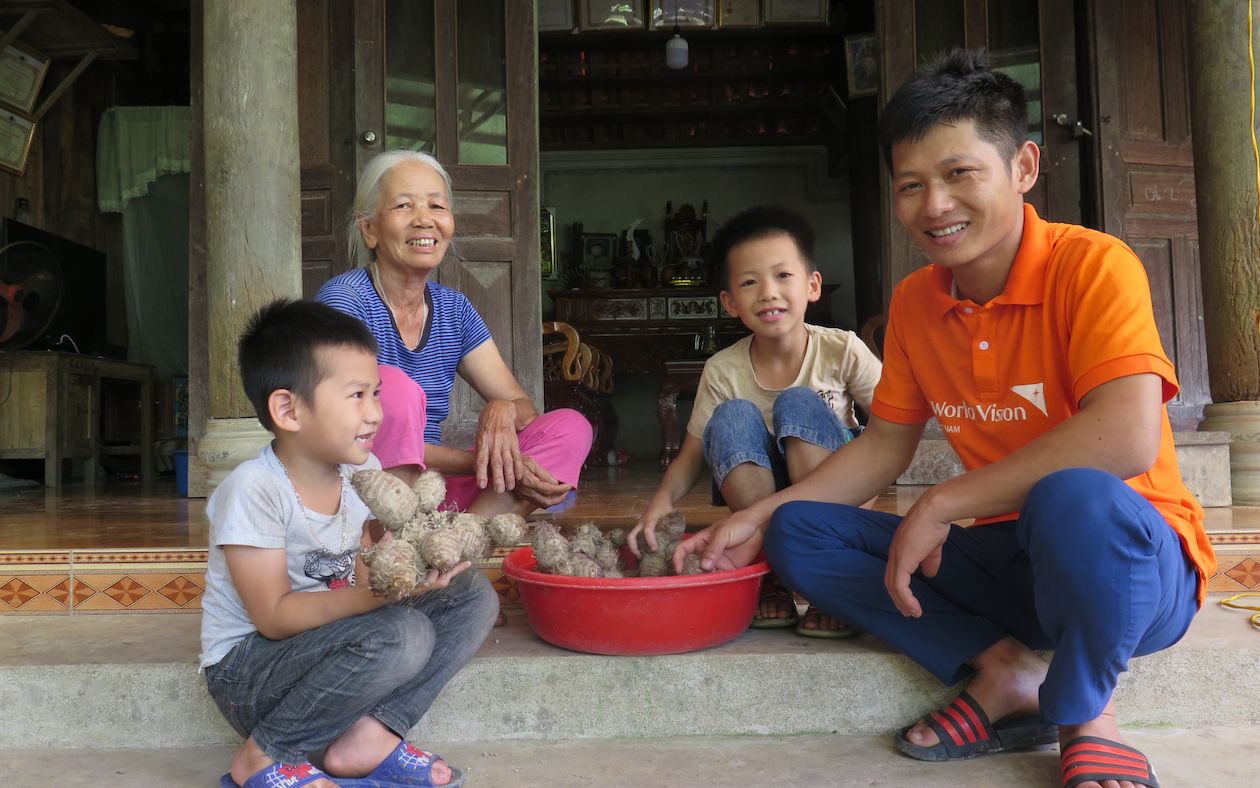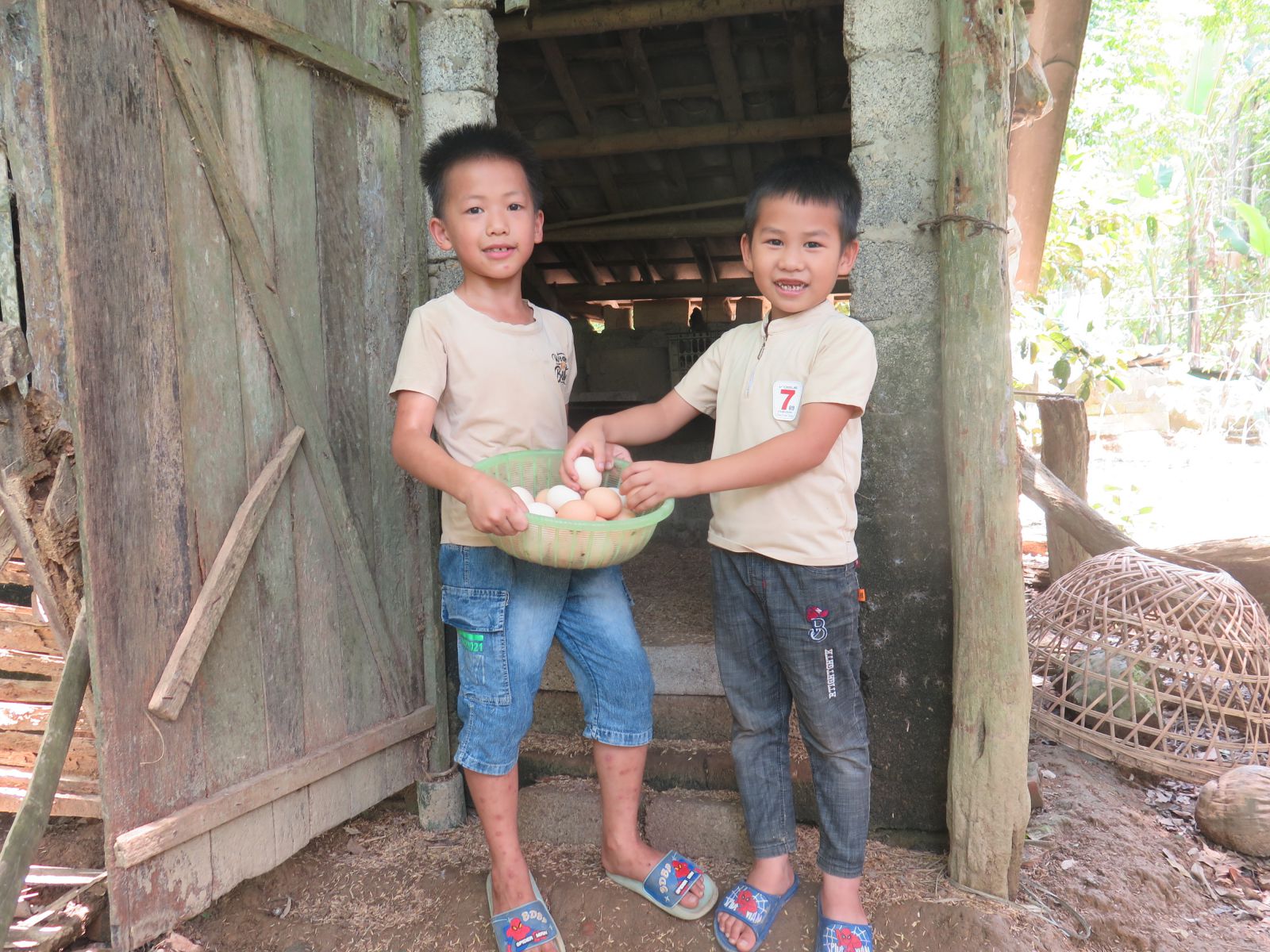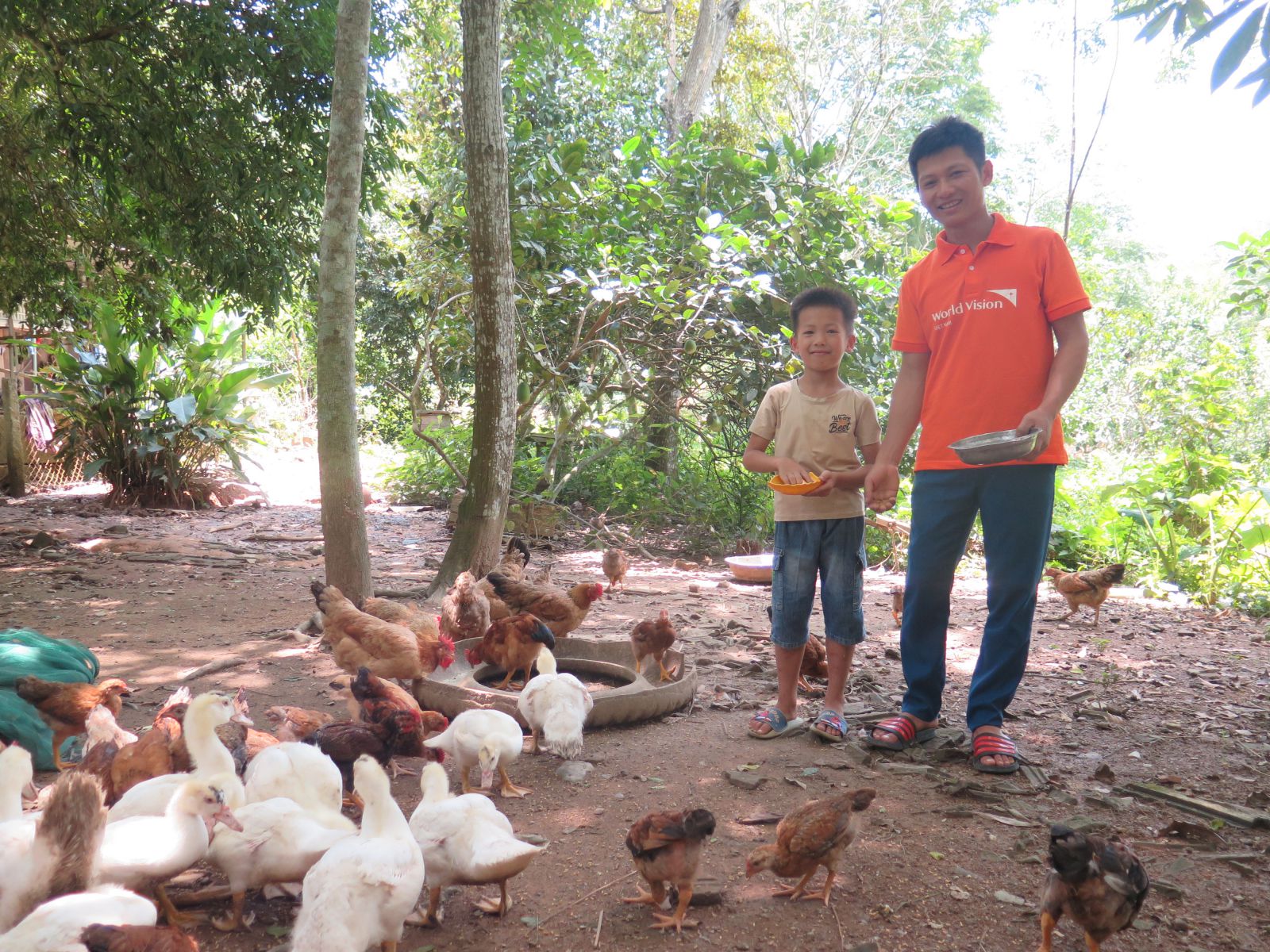At the beginning of 2019, the African swine fever outbreak left many families in Như Xuân District (Thanh Hóa Province) with nothing. Hence, upon receiving eight piglets from the livelihood support project, Vũ Đình Hoàng could not help wondering whether they would make it through the epidemic. Fortunately, thanks to proper training on every step of the process, from barn building and barn washing to vaccinating, Hoàng's little herd survived and thrived. His family was among hundreds of smallholder farming households joining the Sustainably Develop Agribusiness Project – a livelihood support program by Mavin Group in collaboration with World Vision Việt Nam, which has been implemented since 2019 in Thanh Hóa Province.
“Before this, I had never reared this many swine. I’d only kept local breeds for our family to use and fed them whatever we got, like corn, rice, and sweet potato leaves. I never really cared about giving them vaccines because we believed pigs reared as ‘naturally’ as possible would give cleaner and more delicious meat. But of course, productivity would be low, and the pigs could die anytime there was an outbreak or a change of weather”, Hoàng recalled.
When joining the Sustainably Develop Agribusiness Project, Hoàng and other households were trained meticulously on closed-loop and sustainable husbandry models: barn building and washing, planning diet in different development stages, to using vaccines for disease prevention. Hoàng’s and other households’ pigs survived the swine fever epidemic lingering since then, thanks to these newly learned techniques.
Knowing when to take new chances
With the money selling his first batch, Hoàng was excited to think about his upcoming plans: buying new piglets for reproduction, fixing the barn, and buying school supplies for his children. But most importantly, Hoàng started to find confidence in rearing livestock with the knowledge and skills he had just obtained.
Despite this early achievement, the complicated and prolonged epidemic disrupted Hoàng’s reproduction plan for his piglets. Not wanting to stay put, Hoàng made a swift decision based on the resources available on hand - a small surplus selling the pigs, a big pond and yard: to invest in raising ducks and chickens under the supervision of the Sustainably Develop Agribusiness Project by Mavin Group and World Vision Việt Nam.
Hoàng shared with pride: “Ducks and chickens only require a small investment at the beginning while they have a pretty guaranteed output and good prices. Our family can have them for our own use and give more nutritious meals to our children to grow up healthy”.
Indeed, since Hoàng started rearing ducks, his family meals were getting heartier and more nutritious, directly resulting in his two growing boys. “I like eating eggs, drumsticks, and goose meat. Oh, and sweet braised pork. Whenever my parents sell pigs, I’m thrilled because they will get me new clothes and school supplies,” Hướng, eight years old, and Thành, six years old, smiled shyly.
New mindset – new confidence
“The implementation of the Sustainably Develop Agribusiness Project encountered many obstacles due to the swine fever outbreak. Because of the epidemic, even getting piglets from other places made local officials and people anxious. However, World Vision Việt Nam and Mavin Group followed rigorous protocols for quarantine and vaccination before transferring the piglets, which helped ensure a safe production process and minimize the damage of the epidemic” Mr. Đinh Đình Phú, Vice Chairman of the People’s Committee, Bình Lương Commune, Như Xuân District, remarked.
“Thanks to World Vision Việt Nam and Mavin Group’s expertise and experience, the Sustainably Develop Agribusiness Project has been implemented methodically, the careful selection of beneficiaries and husbandry skill training to market linkage support. Our farmers gained more knowledge through the Project, changed their mindsets, and confidently raised livestock to improve their livelihoods. Especially during the most dreadful period of COVID-19 when traveling was more difficult than ever, investing in livestock right in their homeland is definitely an effective and viable livelihood solution,” Mr. Đinh Đình Phú added.
The knowledge and techniques acquired by Mavin and World Vision Việt Nam’s experts provided a strong foundation for Hoàng to harness his skills every day and share his experiences with other households in the Project.
“Most people here don’t take disease prevention seriously. So, I often share my experience with vaccine usage with others. Before joining the Project, many other farmers and I didn’t care about vaccination. Now we know, clean and safe products mean that they must have a clear origin, meet the nutritional content standard, are raised in clean barns, and fully vaccinated,” Hoang emphasized.
“Our income the first time we participated in the Project was not too high, but it greatly encouraged us to continue raising livestock. With the knowledge and skills I got from the Project, we feel confident and ready for new opportunities to improve our livelihoods and enhance the well-being of our family” Hoang beamed with delight.
The Sustainably Develop Agribusiness Project by Mavin Group, in collaboration with World Vision Việt Nam, has supported 106 smallholder farming households in remote areas of Như Xuân District to develop livestock farming and ensure output for their products. Following these initial successes, in 2022, the Project has continued to be implemented in Thường Xuân District with a support package of 12,000 ducklings, more than 40 tons of animal feed, veterinary medicine, and skill transfer. Through this collaboration, World Vision Việt Nam and Mavin Group are supporting improving the livelihoods of 120 disadvantaged households and ensuring a secure and meaningful life for children in the area.



